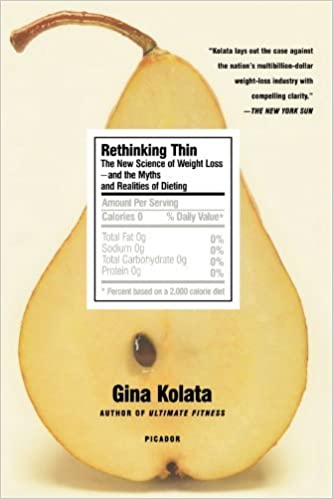Isn’t there any one diet that’s better than all the others?
If there were a magic diet, we would have found it by now, so I don’t think there’s a profound, earth-shattering difference in diets. I’d say, Go on whatever diet excites you. I think about one of the guys in my book.
Some years before he took part in the diet study I was writing about, he had lost all this weight on Jenny Craig and then gained it back. I would say to someone like him, Don’t go back to Jenny Craig, because the magic is gone.
That’s very anthropological – the importance of belief. But for all people’s wonderful motivation, you say the research is clear: If you can lose and keep off only 10 percent of your body weight, you’re ahead of the game.
So here’s the second mystery, and to me a paradox: If people’s ability to lose weight is so tightly constrained by their genetically determined metabolism, why don’t these limits kick in in the other direction? Why are we as a nation getting so much fatter, with double the ratio of obese Americans since the mid-’70s?
When I ask that question as a reporter, all I get is a lot of opinions, poorly supported.
People talk about the rise of fast food and of low-cost family restaurants with big portions replacing home-cooked meals.
Look at the food that I ate when I was a kid. Eggs with mozzarella. Bacon. Dessert with lunch and dinner. Fresh vegetables only in the spring. People would be appalled. You can’t say we eat so badly now, because we didn’t eat well back then – I was there.
But don’t studies suggest we’re eating more calories today, even if the percentage of fat in our diet may have gone down?
It’s very hard to know about calorie consumption. People tend to underestimate portion sizes and to underreport their food consumption in general.
I’ve come across the theory that it’s all the fault of the high fructose corn syrup that was introduced into foods in the ’80s.
Then I read that there is often more fructose in the cane sugar it replaced, and I just laughed out loud. Maybe there’s something in die corn. It may be that food is just so unbelievably cheap now that people can eat their fill. Maybe they can fulfill their genetic potential to be fat.
Like the Army says, be all you can be.
It might be that other factors – excessive weight-gain or smoking during pregnancy, or perhaps some other change early in life – reset the weight ranges for lots of people in the next generation.
These kinds of “epigenetic” changes can be passed on, even though there was no actual mutation in the gene. It would be foolish to say environment plays no role in affecting where you fall in your weight range – which might span 30 pounds.
But something besides environment affects how much you eat over the long term. If you ate a megadinner today, would you want a megabreakfast tomorrow and a megalunch and then another megadinner? You can’t just put huge meals in front of people and expect them to eat every bite of every meal, day after day.
There’s been a lot of research teasing out the biochemistry of appetite. Is the pharmaceutical industry going to come up with a “magic bullet” drug to save us from our weight woes?
I’ve heard, “We’re going to get the answer, and it may take two or three drugs for most people, just like most people with serious high blood pressure take two or three drugs.” And I’ve also heard, “It’s so important for the body to maintain its fat stores that if we tweak anything, something else is going to compensate.”
I see that you’re eating an apple.
I love apples. If I ever have something else at lunch, I have to go home and have one. I’m just crazy about apples.

